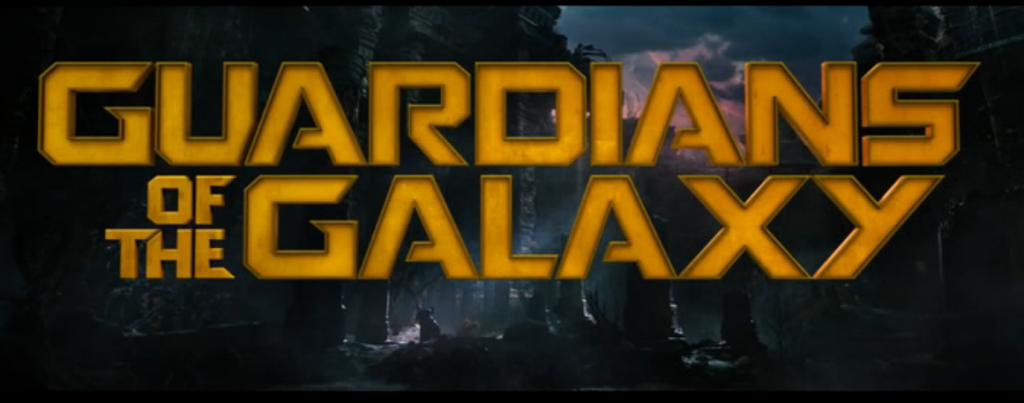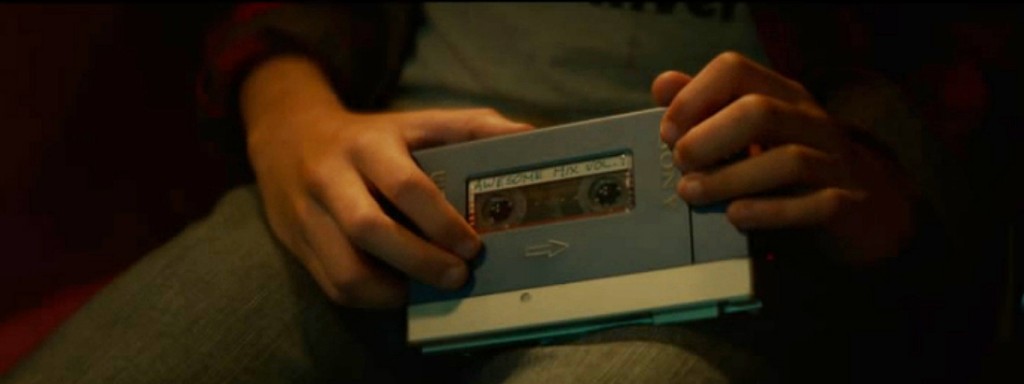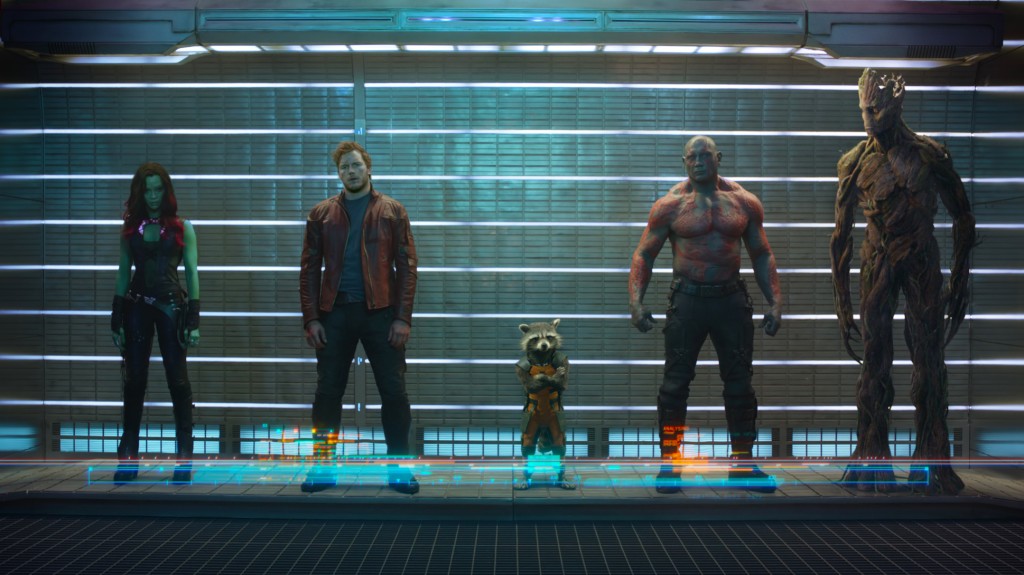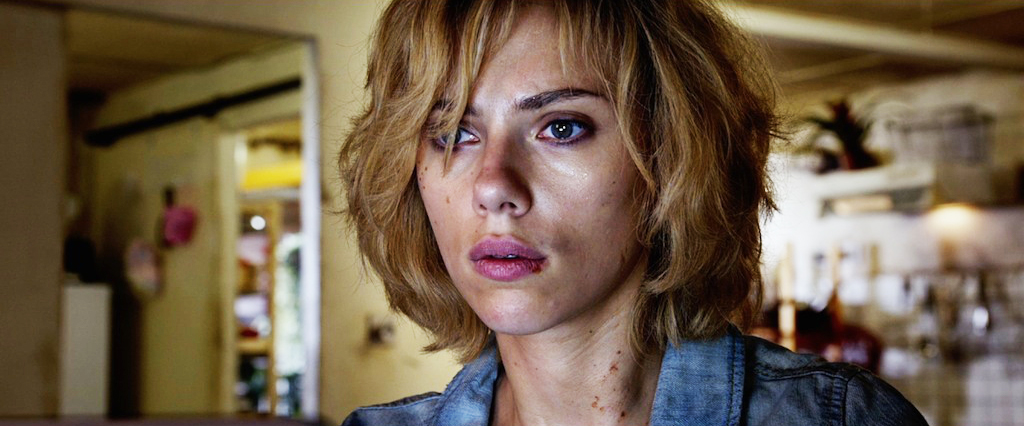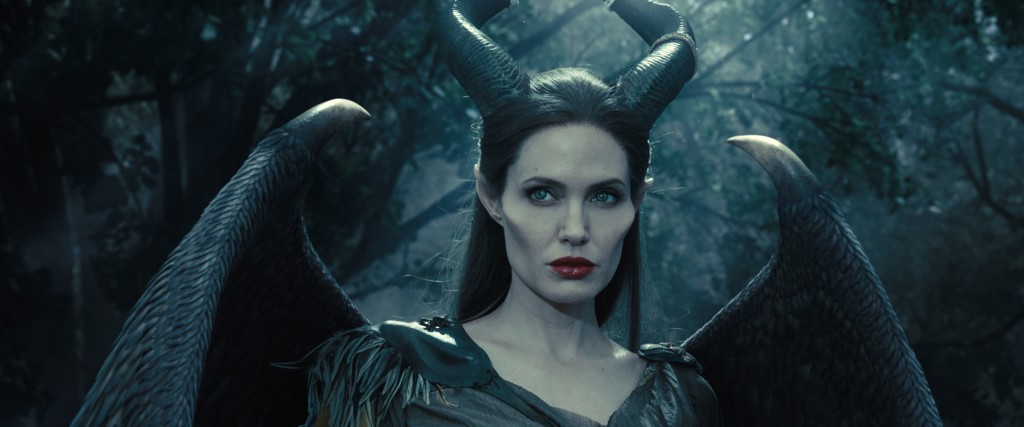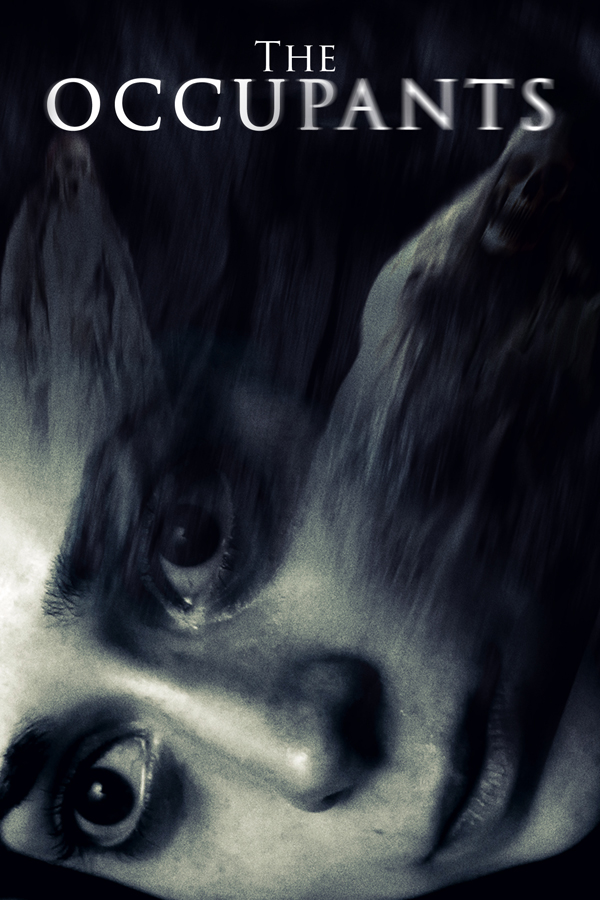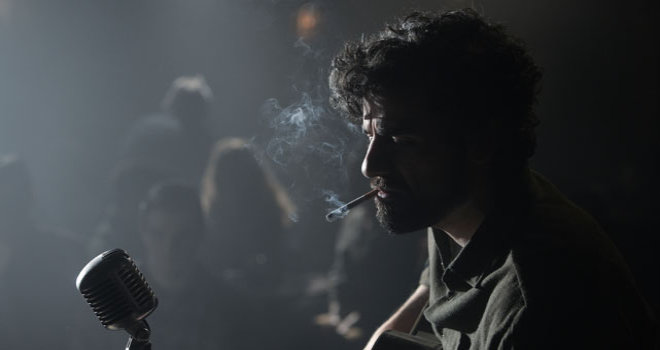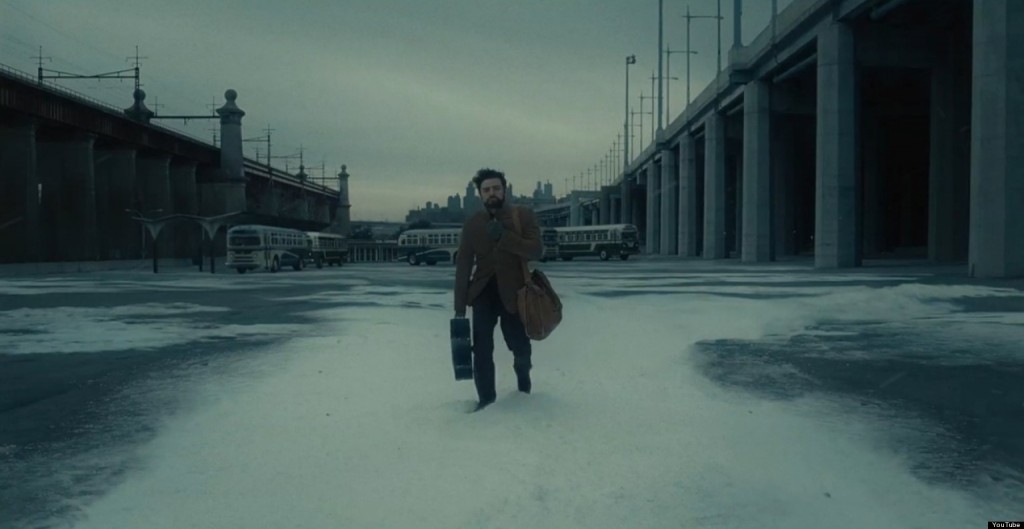Guardians of the Galaxy part 2
After its heart-rending “cold open” in the hospital, the narrative of Guardians leaps ahead a few decades. Peter is now in his 30s, and is engaged in some high-tech sci-fi shenanigans. As the titles roll, a one-man heist sequence plays out, an affectionate parody of the opening of Raiders of the Lost Ark. Peter is no longer a sobbing boy or a helpless victim, he’s now a swaggering space-pirate looting ancient cities for lost treasure. His Walkman is no longer his shield, exactly; it’s now more like the vessel of his mojo. Instead of Indiana Jones carefully reading clues, dodging traps and insisting “That belongs in a museum!” we have Peter casually jiving his way through a ruined planet’s rainy landscape, kicking deadly lizards out of his way and even using one as a pretend microphone.
Guardians of the Galaxy part 1
For a big-budget, gee-whiz, goofy-space-opera summer blockbuster, Guardians of the Galaxy begins surprisingly quietly.
A boy sits in a hospital corridor in 1988 cradling his Walkman. “Awesome Mix Vol 1” reads the label. He’s listening to “I’m Not in Love” by 10cc. “I’m Not in Love,” from the summer of 1975, was instrumental in launching the career of 10cc. Originally written to a bossanova beat, it was reworked to feature an all-choral backing, made up of hundreds of overdubbed voices. Whether this was on the minds of the makers of Guardians or not, but the strength-in-numbers / linking together vast chains of individuals theme resonates throughout the movie. The subject matter, oddly, is a young man refusing to say he’s in love, until finally he’s deluding himself.
What does that have to do with the boy in the corridor? Well, his mother in dying in the next room, and he’s intent on holding in his feelings. His Walkman here is his shield, his way of holding the world and its horrors at arm’s length. And we will find that, in a way, the whole narrative of Guardians, with its reluctant hero who eventually joins society and does so, successfully, on his own terms, is about a boy who insists that he’s not in love until he finally admits that he is.
(“I’m Not in Love” is also a song from an album titled Original Soundtrack, which is a fine enough joke in its own right.)
On top of all that, “I’m Not in Love” sets the tone for Guardians‘s meta-narrative of “modern” humanity and its relationship with culture, especially culture of the past. A pop song from 1975 is an odd thing, I think, to find on the Walkman of a boy in 1988, until you realize, much later, that the “Awesome Mix Vol 1” was a gift from his mother, the same mother who’s dying in the next room. It’s not “his” music the boy is listening to, it’s his mother’s. The “Awesome Mix” is a kind of parting gift from mother to child, an invitation to popular culture and a sweet sampling of “adult” emotions, to guide a son through the rockier moments of life. The culture the boy’s mother has chosen to share is unabashedly popular, populist, “fun” (as opposed to “serious”) and life-affirming, all of which adjectives describe Guardians as well. Just as the boy’s mother’s mix-tape is designed to guide and celebrate, so is the movie.
some thoughts on Guardians of the Galaxy
When the previews for Guardians of the Galaxy started showing up in theaters, I was struck by the ways they used Blue Swede’s “Hooked on a Feeling.” That song was a nutty novelty hit when I was a wee lad in 1974, and I wondered if anyone else in the theater even remembered the recording, much less felt the sense of nostalgia I did when I heard it. Would people think that “Hooked on a Feeling” was some kind of message from another planet? What could its inclusion in the trailers for a Marvel movie possibly mean, except that, obviously, Guardians of the Galaxy was not a movie to be taken entirely seriously? And yet, that song, and the aesthetic choice that led to its inclusion in the movie, is a key part of understanding the appeal of not just Guardians but of the entire Marvel Cinematic Universe project.
Some thoughts on Lucy
Like a lot of things with me these days, the first thing you have to understand about my reaction to Lucy is that I’m old. I’m old enough to have worked at a movie theater in New York when Subway was released, and watched its delirious blend of kinetic cinema, outlandish violence and heartsick romance repeatedly. I’m old enough to have gone to see La Femme Nikita in a movie theater, many times, thrilling to the many ways it was a vast improvement over Subway. I’m old enough to have felt frustrated over the past two decades as director Luc Besson built his gigantic company in France, became a big-budget producer, made computer-animated movies for children and only occasionally made what I’ll call “Luc Besson movies,” that unique blend of kinetic cinema, outlandish violence and heartsick romance that I fell in love with so many years ago. If nothing else, Lucy is a stunning return to form for Besson, at once a thrilling summation and a brilliant leap forward.
some thoughts on Maleficent
Many years ago, I was up for the gig writing the movie adaptation of Scott Westerfeld’s wonderful sci-fi (then) trilogy Uglies, Pretties and Specials. I liked the books a lot and the idea, I thought, was a real fire-cracker: a dystopian future, a sci-fi trilogy, with a female protagonist, where each movie in the trilogy would examine the same society from a different point of view. It had never been done before and it was a huge opportunity. The producer who brought me the books was a respected big-budget sci-fi producer, and the project was set up at a genuine big-deal studio. All I needed to do was get a firm handle on how to tell the story and there was no way the project could not move forward.
Medusa
Big news in Todd Land, I and my writing partner Holly Golden have sold Medusa, an original pitch to the nice people at Sony Animation. That’s partly why things have been quiet here at What Does the Protagonist Want? We’ll be writing the screenplay, and the movie is going to be directed by Lauren Faust, who created My Little Pony: Friendship is Magic. So we’ll be appealing to both Greek Mythology fans and Bronies. You can read all about it here!
The Occupants
Faithful readers will recall that, a couple of years ago, I co-wrote and directed a movie, Blood Relative, was bought by some folks and re-titled The Occupants. Oddly enough, I’m okay with that title, it suits the movie well.
The movie is now available through iTunes, my favorite music platform, and through Google Play, which is my favorite place to buy Rolling Stones live albums. Watch it today! And, feel free to comment here on whether or not you liked it!
“What Patty Thinks”
Novelist, performance artist and Friend of Alcott Lisa Lerner has started making short films about the ways that a little girl experiences the adult world. The first, “Underwear,” is now up at the Youtube website, and you should watch it.
Coen Bros: Inside Llewyn Davis part 11
Homeless and jobless, Llewyn goes once again to Jean, not to stay or even to crash, but just to rid himself of his belongings. Jean, surprisingly, shows a little concern for where Llewyn might stay. Until he forgets when he scheduled her abortion for, that is.
Coen Bros: Inside Llewyn Davis part 10
Llewyn, newly discarded from the world of show business, trudges back to New York in this cold, cold American winter.He hitches a ride with a guy going east, driving so the guy can sleep. The guy, who seems to be a regular working-class guy, one of the millions who, in Llewyn’s mind, merely “exist,” trusts Llewyn to handle the situation. Which, in its way, is the saddest joke of the movie.
